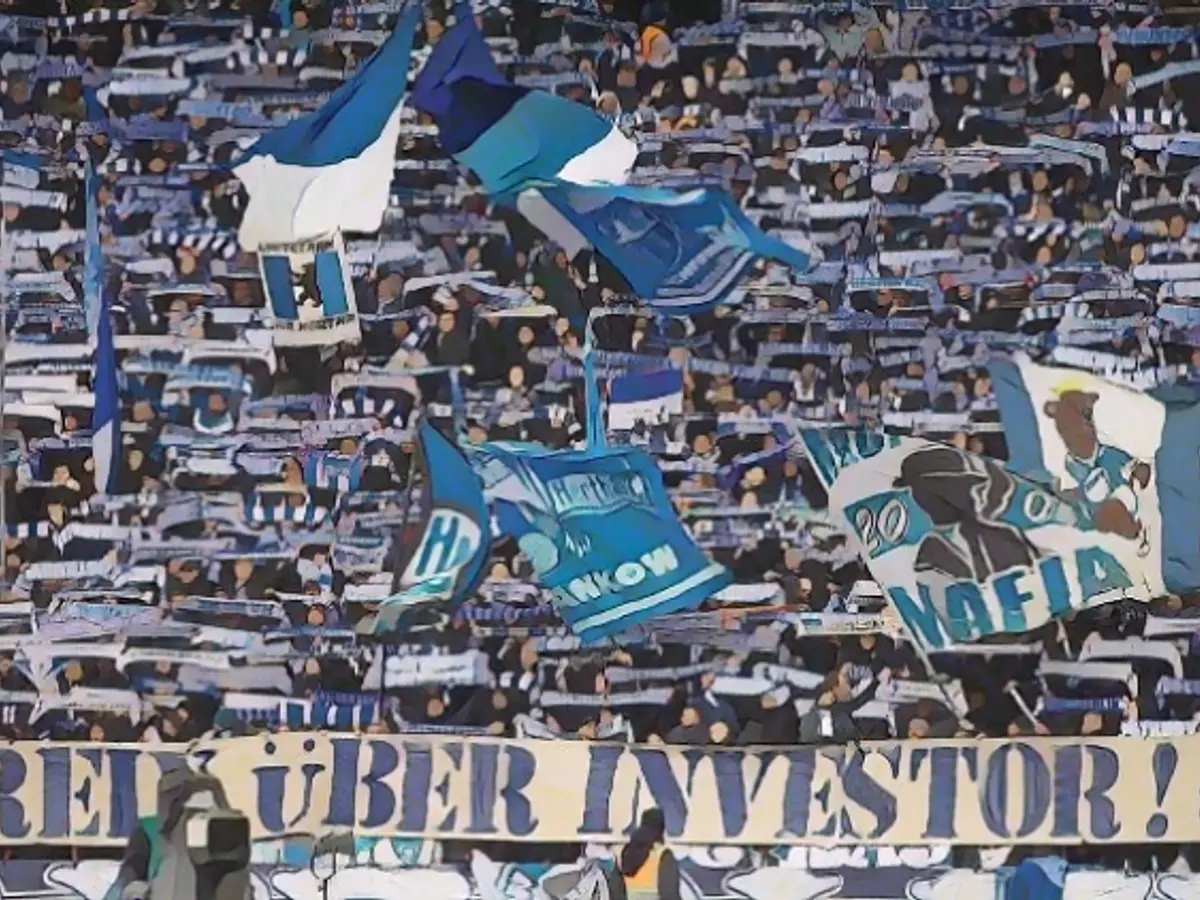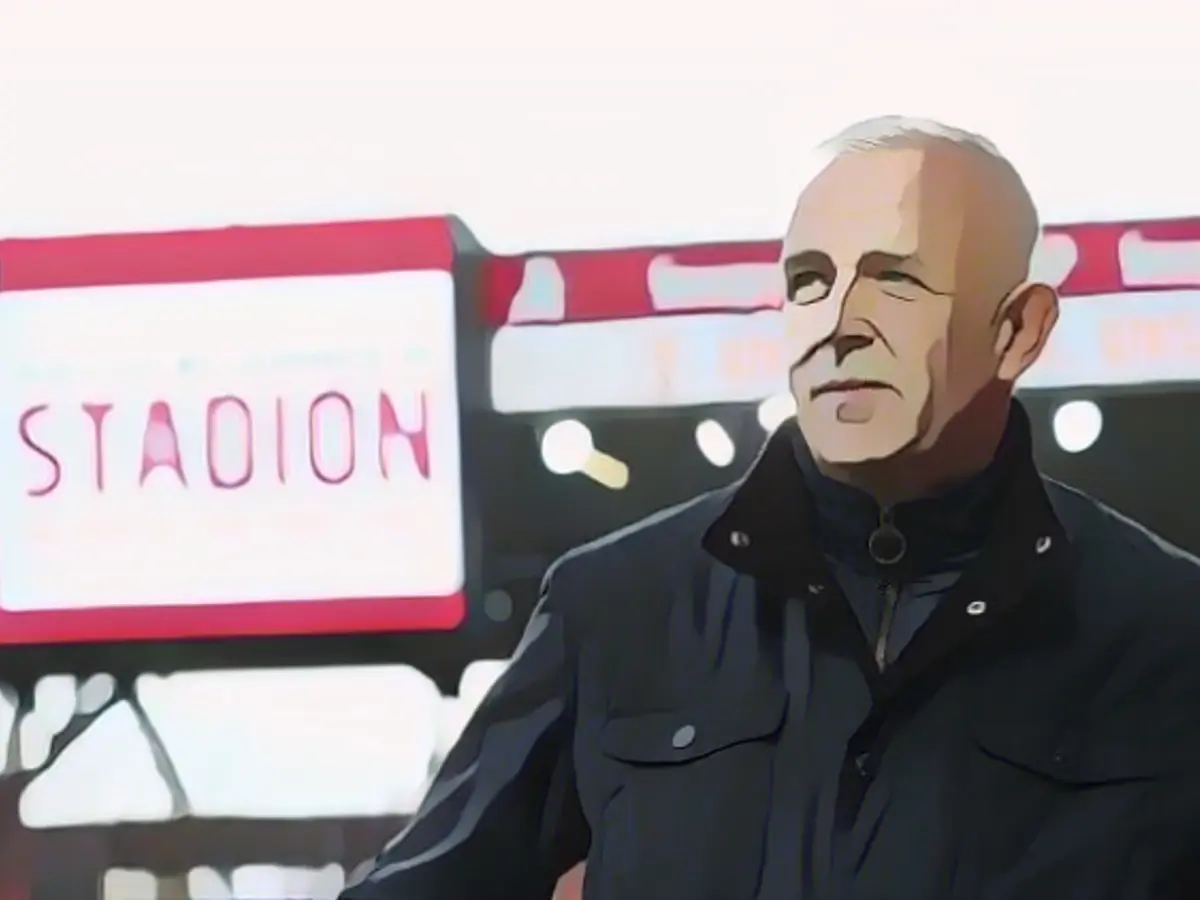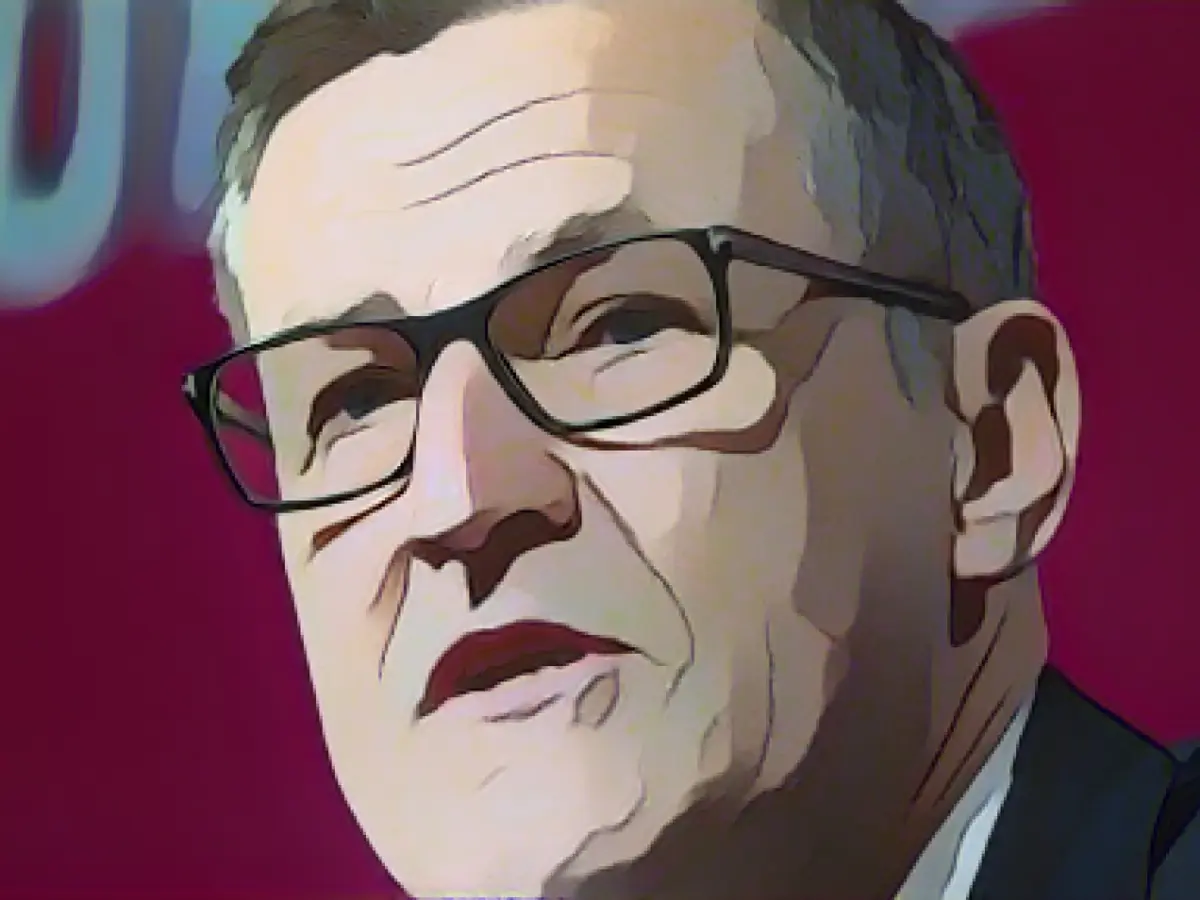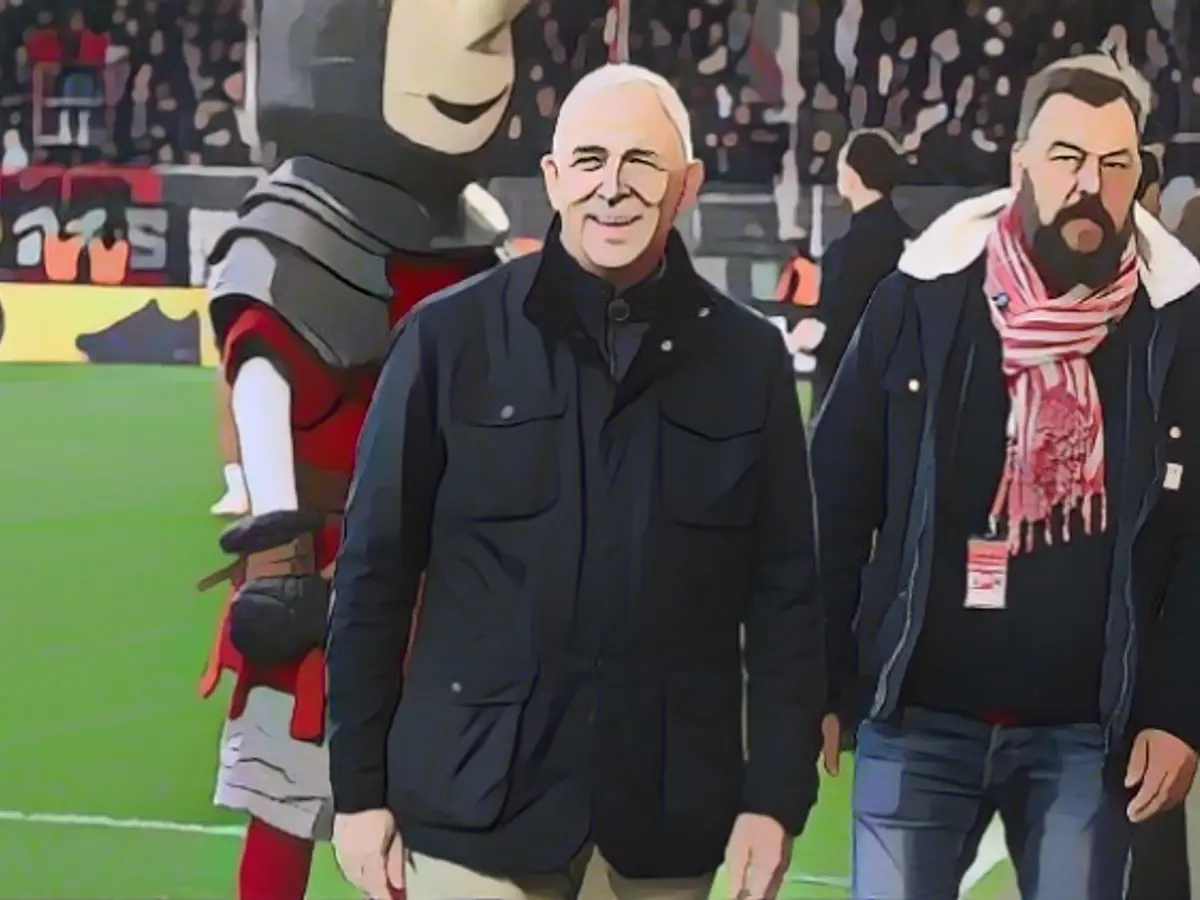Is Soccer on Its Last Legs, Golfie?
Many soccer enthusiasts are up in arms: the professional clubs are considering allowing external investors to join the German Football League. "Money is constantly scarce in soccer," says Richard Golz. He's played 453 Bundesliga matches and now advises the management of sports clubs.
Did Soccer Kick the Bucket on Monday?
On Monday, the DFL member clubs approved the sale of the media shares to an investor by a slim majority. Soccer fans have been vocal about the decision for months, with some even questioning the existence of their beloved sport.
Golz: No, not yet. We're still a long way off that. As usual, the truth lies somewhere in the middle. The clubs have a constant need for investment and face intense competition. So, they must talk about revenue pots. But there are points that the fans naturally understandably highlight.
Where's the Beef?
I'm thinking about ticket prices, for example, which are relatively reasonable in Germany. An investor, being interested in maximizing the clubs' income, could certainly increase ticket prices. And in light of high demand, this would likely change the atmosphere celebrating the game in the stadium. We've seen this effect in England, where once-famous stadium atmospheres are now but a glowing memory.
Are Ticket Prices a Factor in All This?
Not necessarily, but everything is interconnected. A more profitable club has more resources to attract top players. That, in turn, makes the league more appealing, which ultimately increases media revenue.
What's the Fan Groups' Plan of Action?
Their usual repertoire of banners and whistles will likely make a comeback. The clubs and the DFL have to respond to these criticisms now. Hiding the vote behind closed doors was not a wise move. In Hannover's case, the issue became a political one.
Why Was the Vote Held Secretly?
Probably to avoid controversy, but it only added fuel to the fire. Transparency is crucial for rebuilding trust and repairing the fractured relationship between fans and clubs.
Is a Split Irreversible at This Point?
I don't believe so. It's still too early to declare soccer's death – the deal isn't even finalized yet. This is a process that needs to unfold based on shared transparency and communication between the clubs and fans.
Haven't Clubs Been Feeling the Financial Strain?
Money is indeed tight in soccer. Clubs need constant infusions to keep up with the times and maintain competitive standards. But the sale came about more as an opportunity for growth rather than due to desperation.
What Changed This Time Around?
Conditions were vastly different between the first vote in May and the current one. The departure of DFL's former president, Donata Hopfen, left a void. Potential investors were no longer available, leaving many clubs in the dark. Communication also played a vital role, with both parties failing to address concerns properly.
Is there a Red Line That Investors Can't Cross?
The DFL has proven their commitment to upholding high standards. In their negotiations with potential investors, they have set clear "red lines," ensuring control over daily operations and upholding the values of German soccer culture.
Can Fans Trust the Decision-Makers?
Communication is the major issue. Despite acknowledging "red lines," fans demand more concrete explanations for the decision to involve private equity. If the DFL had effectively conveyed the reasons and benefits of this move, the skepticism might have subsided.
Has Influence Always Been a Factor in Soccer?
Influence has always played a role when it comes to sponsors, but their reach has traditionally been limited. In the past, players were insulated from commercial pressures, maintaining the purity of the game.
Will the Current Plans Make Soccer More Exciting Again?
Unfortunately, no. Instead, the gap between the big clubs and everyone else might widen even further.
Is there a potential system change on the horizon?
If soccer fanatics had their way, clubs with the largest fanbases and TV reaches would be guaranteed a spot in the league, with a separate group for sporting qualifiers. These concepts were embraced in the USA, and they make for an intriguing alternative.
What's the Big Deal with Private Equity? Couldn't Clubs Just Borrow the Money?
Private equity is the most expensive financing option, but it also brings investment opportunities and synergy effects. For example, investors might already have a foothold in the soccer world, which could prove beneficial.
Jannik Tillar interviewed Richard Golz for capital.de.
New investors might be interested in purchasing media shares from the DFL, leading to speculation about potential ticket price hikes and an eerily corporate atmosphere in soccer stadiums. Despite these fears, Richard Golz believes that the German clubs need financial assistance to remain competitive.
The sale, while not directly impacting ticket prices, might influence the balance of media revenue distribution and commercial sponsorships in the league, ultimately affecting the overall fan experience. Some of the concerns of soccer fans revolve around questions regarding fair revenue distribution and whether the sport will become too commercialized.
Source:
Enrichment Data: The potential sale of DFL's media shares to investors might indirectly influence ticket prices and stadium atmosphere by altering the financial and commercial dynamics of the sport.
Impact on Ticket Prices
- Financial Stability: If the media sales lead to better financial stability for DFL and its clubs, ticket prices might remain stable or potentially decrease. However, this does not guarantee price reductions.
- Revenue Distribution: The fairer and more balanced distribution of TV revenue could lead to more financial stability for clubs, potentially allowing them to keep ticket prices stable or even decrease them to attract more fans.
Impact on Stadium Atmosphere
- Commercialization: Potential private equity investment might lead to increased commercialization and sponsorship in the sport, potentially affecting the overall atmosphere in soccer stadiums. The focus might shift toward corporate interests, potentially alienating some fans.
- Fan Engagement: If TV revenue distribution considers factors like public interest and fanbase, it could lead to more engaging content and promotions that enhance the fan experience. However, the effect on stadium atmosphere would depend on how these funds are allocated by clubs and stadium management.
And that's the unfiltered and uncensored take on soccer and its financial woes.








